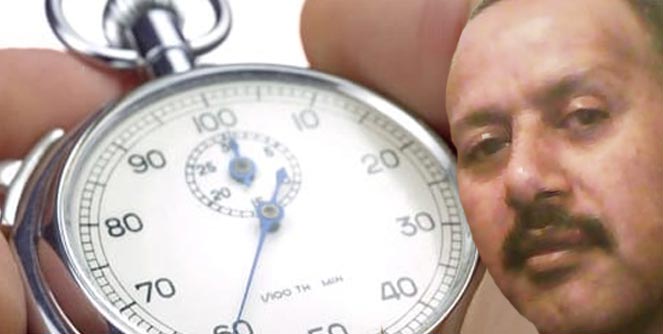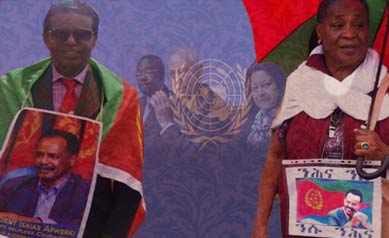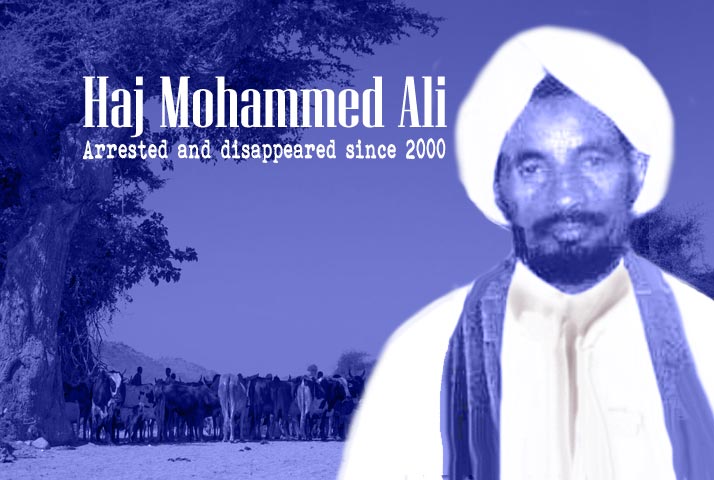Eritrea-Ethiopia On June 20, 2018: Martyrs’ Day Observances

That the wisdom of PM Abiy Ahmed of Ethiopia being evident by now is to state the obvious. His rapid response to the Asmara regime when it pronounced it was sending a team to negotiate peace between the two neighboring countries is obvious that the man is as genuine as they come. What is also obvious is the generational gap in substance and leadership style, which couldn’t be any starker than that of Ethiopia when compared to our “self-anointed ruler” for the last three decades. To get an adequate picture of the two speeches, textual and contextual analysis must be invoked. In a country like Ethiopia where patriotism and nationalism have had deep roots in the psyche of the population for generations, no wise leader would attempt to just erase that powerful force with a strike of one speech. He has to maintain some measure of nationalism catchphrase to put the people at ease, keep them in their elements. Otherwise, he runs the risk of losing the overwhelming public support that he enjoys without which he cannot transition or lead his people to the greener pastures. Thusly, he is gently introducing notions of Pan Africanism.
Those who mindfully listen to PM Abiy Ahmed, variants of Pan Africanism concepts are subtly inculcated seemingly fleetingly in his speeches. For example, in the first speech PM Abiy gave when accepting the Algiers Agreement without any condition and extended the olive branch to the regime in Eritrea, he called it by its rightful name, the Pan Africanism (PA). In subsequent speeches, however, concepts of PA come in a form of economic cooperation with neighboring countries like Eritrea, Somalia, South Sudan, Sudan, Kenya, etc. Or as in the response he gave to a question that was asked by his colleague during the parliamentary session in which the issue of border peace with Eritrea was discussed; his concepts of PA are getting more pronounced by the day. Now, he is openly saying these borders are nothing than artificially demarcated by colonizers.
How different is PM Abiy’s leadership style than his predecessors?
The proof is right there in the putting. Whereas the previous two PMs gave a lip service to the Algiers Agreement by simply stating they agreed to it in principle, but talks must resume to flesh-out details, PM Abiy’s approach was hammering the border issue not only through rhetoric but by following it with deeds. The corollary to such dogged insistence is what we are already seeing on the ground in real terms showing results. One will be wise to remember, TPLF, under the late Meles Zenawi’s leadership, sold Ethiopians the war of 1998 using nationalism and patriotism as the motif, most Ethiopians were on board instantly. At that point, most Ethiopians lined up with the TPLF led government. So, the half-hearted lip-service from the late PM Meles Zenawi and former PM Hailemariam stems from that mindset that informed their political arrogance equivalent to their foes in Eritrea. Both – Ethiopia & Eritrea – operated under the rubric of nationalism run amok. For example, the uprooting of the peoples of the two countries becoming casualties of jingoism colored with arrogance on steroids is a case in point. Such being the unfortunate and sad recent experiences between the two countries, seemingly in whispers now, PM Abiy is introducing the concepts of pan-Africanism and thereby slowing down the hyper-nationalism and hyper-jingoism rhetoric.
PM Abiy’s Ethiopia knows he has one potent-potion that he can use to taper-down these nationalistic and patriotic rhetorical devices that served the previous PMs of Ethiopia and that continues to serve the regime in Eritrea. Of the few nations in the continent that can carry that message of Africanism effectively and with credibility is Ethiopia; its history positions it to lead the rest of the Horn of Africa and hopefully beyond via the vehicle of Pan Africanism.
So, now, in his recent speech to the Parliament and subsequent speeches, PM Abiy is adding notions of the border not only as arbitraries but that they were the outcome of colonizers (ቀኝ ገዢዎች) – The artificial nature of the borders in Africa he has called it by its rightful name. These kinds of elaborated schemes and articulating it convincingly as he invoked the people by their identities giving them their humanity. Highlighting when necessary such that of Oromos who live on both sides of borders in Ethiopia and Kenya. How these nationals vote on both sides of the border because these people, for all intents and purposes, are one and the same. Little by little PM Abiy is playing the educator-in-chief as he elucidates to the public the damage the Scramble for Africa that Europeans have wrought. And that we are foolishly continuing to fight and kill each other for the arbitrary demarcation that the colonialists designed. He is essentially saying these are nothing more than fools’ errands hatched for us by alien entities and to keep killing each other when we can use the simple economic arithmetic of addition instead of division. Using the former we will all prosper and following the latter, we will be poorer. Effectively, this is just a variation of ‘united we stand, divided we fall’ theory akin to what Pan Africanism (PA) is all about. Lacking such an understanding has paid a handsome dividend for the West and lack of appropriating the concepts of Pan Africanism continues to wreak havoc all over Africa and beyond.
Brief Textual and Contextual Analysis from the Home Turf
Now, consider the 20th June speech from home turf. Any man who appreciates presidents like Trump, which is how the speech began, is a man who has not only the propensity for a dictatorship but is a bona fide tyrant to the core. The kicker is he has the temerity to denigrate the previous administrations of the US, which is his typical style of pointing fingers of blame to the outside world without apportioning any responsibilities to himself as a de facto leader. Likewise, he does the same with Ethiopia’s two previous two administrations to elevate PM Abiy.
This kind of rhetorical strategy is geared to two kinds of audiences inside Eritrea and the diaspora supporters of the regime. On the former, he is appeasing the ultra-nationalists who would continue to buy his rhetoric that will give face-saving mechanism where they can fool themselves into believing all the misery of the last 18 years were not of the regime’s own making. As such, it was worth the undue and the irresponsible damage the man and his cohorts have caused on the country and its people. Rather, it was the outside world that always tries to pummel Eritrea, but, by golly, against all odds, Eritreans always prevail. The same sentiment serves a similar purpose on those who are in the diaspora who have been blindly supporting the regime; yet another face-saving mechanism so they may continue to believe in the wisdom of the man, and the hooray reaches feverish pitch as we have been made to witness. Ironically, some in diaspora are already breaking ranks from the opposition and joining the chorus, ready to bow to the very defective structure that brought the untold and endless miseries to Eritreans and continues to do so as we speak.
In the context of this article taking an opportunity to delineate and unambiguously what must be stated is this: There needs to be a clear distinction when it comes to nationalism and patriotism. Those who spared their lives between 1961 to1991 irrespective of what the circumstances were in which they paid the ultimate price for the nation-state yet to be born; those who felt duty-bound to defend their nascent nation between 1998 to 2000 were martyrs all the same. They were patriotic to the core and should be remembered as such. The worrisome part is those who take refuge and invoke patriotism when they should resort to reason. Some wrap themselves under the flag others under the territorial integrity hymn to spew their hate of a people who otherwise are brethren with whom they have had a long history of blood ties. To be sure, there is a time when one should wave a flag; scream “my country right or wrong”; defend the homeland from foreign invasion to the death. Eighteen years later, for the regime in Eritrea to come out and spew a gut level hate toward a Front with whom he made a Faustian bargain and brilliantly forced one of the most powerful armies of its time is something worthy of finding a reconciling tone. A leader who came to power by default and a man who had shown no interest in the welfare of his people cannot be expected to show any hint of magnanimity, so the two-bordering population may go back to the way they lived their lives. To pin one’s hope on a leadership-by-bulldozing is not only destructive but irresponsible to the core. The kind of a homemade tyrant we have is evilly capable of using jingoism to a hilt because it does the trick, He is a scoundrel and a good snake oil salesman to the core. A scoundrel will use Tigrayan people as his boogie men to stay in power if he has to. The false narrative of patriotism that spews from the PFDJ-land is nothing but a refuge for these handful rogues. There is nothing these thugs can say that will make one believe they are patriots like the thousands upon thousands who genuinely loved their country, have been and continue to be because they cared and continue to care about Eritrea and its people. Just as the same can be said about the way that the young Eritrean men and women were when they went to the battlefield to protect the sovereignty of the nascent nation.
Cautionary Note to PM Abiy
Unlike Abebe Bekila’s marathon in Japan or subsequent marathons that Ethiopians have won, this political marathon PM Abiy is taking has real-life implications. The magnificent and impromptu demonstration in support of PM Abiy that we observed a few days ago, though historic and fantastic, it, however, needs to be soberly analyzed and assessed. What if PM Abiy was harmed! Imagine the chaos that would’ve ensued. This is not to minimize the death of the innocents, but harm to PM Abiy would’ve unraveled the country, if not destabilizing it entirely. All of the incessant and non-stop actions without giving the public a chance to process it, the pace of changes taking place can be, not only dizzying but disorienting. This is not to say PM Abiy should go at a snail pace – like you know who – but just give people a chance to theorize.
Some heartfelt suggestions I read are worth not only noting, but also worth heeding to because the speed at which PM Abiy is traveling can get into a collision course, the outcome of which can end up hurting the country and its people: why jump when sprinting can do; why run when walking can do. PM Abiy, the educator-in-chief needs to give people time to process the changes that are taking place. Give the experts a chance to assess, analyze, and synthesize what’s taking place, which will help to inform their positions.
These are not ordinary times. Seemingly abruptly a political-monkey-wrench was dropped on our region that nobody saw coming. To say that we were caught by a surprise would be a mother of all understatements. What Ethiopia’s new PM, Dr. Abiy Ahmed has been doing for Ethiopians is awe inspiring. A brief overview of what has transpired since June 5th, 2018 should suffice for context. Addis Standard reported that Ethiopia has accepted the border agreement with Eritrea earlier this month. According to Addis Standard, “[a]fter a day-long meeting by the 36 Executive Committee members of the ruling EPRDF a statement released by the politburo said Ethiopia will fully accept December 12, 2000, Algiers Agreement, a peace agreement between the governments of Eritrea and Ethiopia, which established a special boundary commission.” This news is now too old of a news, considering what has transpired since then as far as Ethiopia is concerned. Needless to say, a response from Eritrean regime was eagerly anticipated. Eritrea’s willingness to send a six-member-team to Addis to negotiate the peace agreement was announced two weeks after Ethiopia’s willingness to honor the agreement. This is certainly a step in the right direction. But, the nature of politics in Eritrea being what it is, cautious optimism is all that one can utter at this point. Any further analysis will be nothing more than conjectures, assumptions, and presumptions, which will only prove to be an exercise in futility.
Beyene Semere of SBS Radio interview of Dr. Mussie Tesafgiorgis on the border issue that was broadcast this morning was a wonderful treat to listen to. These are the educated lot whose voices have been rendered silent for far too long because of the boisterous few. And the void that the educated sector of our society left behind is creating a space for those loud-mouthed – ignorant – people to dominate the conversation. Please listen to the interview–this kind of conversation must happen if we are going to begin to see Eritrea of the future. Eritrea that is at peace with itself, with its own citizens, with its neighbors – Eritrea part of the global community.
NB:
Here are two comments from the Awate Forum, they succinctly captured what many are feeling about the looming danger the PM Abiy may unwittingly be subjecting himself, and in turn the country and the people he cares about:
“He is the leader of a section of this world, not the leader of “The City of God” if I could borrow St. Augustine. One of my favorite dictum of “Realism” goes: “Man owns immortality for his salvation here-after, the nation doesn’t own immortality for its salvation is here or never.” May God bless and protect the young PM!” (Paulos, 6/23/18)
“I would love to see a little slow down in the process of change not because I am being conservative due to my old age but wanted to share my two cents observation from Kurt Lewins book which eloquently elaborates the advantage of gradual change. If PMAA is to take a method of gradual change it will allow him to focus on some aspects of change in times where he feels the need to give time to let go of old habits.” (Kbrom, 6/24/18)



Awate Forum